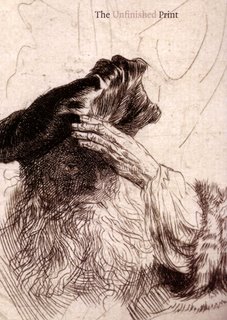The Death of The Conclusion

I have a bone to pick with movie-makers. Somehow, in the last 10 years, it's become vogue to lob off the conclusions to your movies. It's not uncommon to find whole character threads unresolved.
For example, in "The Three Burials of Melquiades Estrada" we follow the breakdown of Mike Norton, whose own wife describes as "beyond redemption." But by the climax, Norton is kneeling, crying, and begging for forgiveness.
Norton's conclusion is delivered in one line of dialogue. "Are you going to be okay?" This is fine. I can see by this question that Norton has learned to care about other people. BUT we're never allowed to see what happens to the other characters that have been introduced. What about his wife, or the woman at the diner, or the sheriff? These characters are cut loose without a conclusion of their own.
Take the movie "Les Miserables" for example. They do the same thing. The climax happens when Javier throws himself into the river and Valjean is set free. Valjean's conclusion is simply an exultant smile on his face. But we never see what happens to his daughter, or her lover. We never see how the other characters in this movie are impacted by the climax. The book and the play are NOT this way. So why do movie-makers feel they can introduce supporting characters and subplots, yet never conclude them?
What I'm trying to say is that it simply isn't enough sometimes to show only the protagonist's conclusion!
The Lord of the Rings is a good example of a fully developed conclusion. How would you have felt if the movie ended with Frodo and Sam on the rocks at Mount Doom and the eagles carrying them away? What if the credits rolled just at that point? That would be enough of a conclusion, right? I mean you can intuit from there that they go home, they get better and they reunite with their friends, right?
But the movie would be so much less fulfilling if we hadn't seen what happened ot Aragorn, or Sam, or the Elves. Now that, my friends, is a conclusion. It allows the story to unwind. If movie-makers develop characters that win the hearts of the viewers, then take some time to wrap things up!
And that is my conclusion.


3 Comments:
i totally agree with you... like in "the world's fastest indian" they cut off the scene from when he crashes and he is back in australia and everything is fine. what happens to all the people he met? did he stop and see that lady again on his way back through to the coast? did he meet other people? what happened with the transvestite? too many questions left unanswered. what's with that.
here, here! say it again. movie viewers need to know about the fate of all characters they have become endeared to. it irks me, too.
oh, and you don't know me, but i stop by from time to time. :)
Kia ora everyone.
I agree with what's been said about "The Death of the Conclusion" and all that. But I do have to make a correction to Corrie's comment. Burt Munroe is a true blue Kiwi bloke from New Zealand, Aotearoa (land of the long white cloud), kiwi-land: NOT Australia! You know, New Zealand is a different nation than Australia, not to mention a separate group of islands. But once again us Kiwis don't get recognized and those cheeky Aussies get all the credit. All of us here down under are getting quite tired of bein' forgotten and we'll have no more of it eh!
Anyways, no worries corrie- no harm done mate. Hey, that Christin girl's a bright spark eh? Glad to say I know her.
Cheers Tin ;)
Post a Comment
Subscribe to Post Comments [Atom]
<< Home